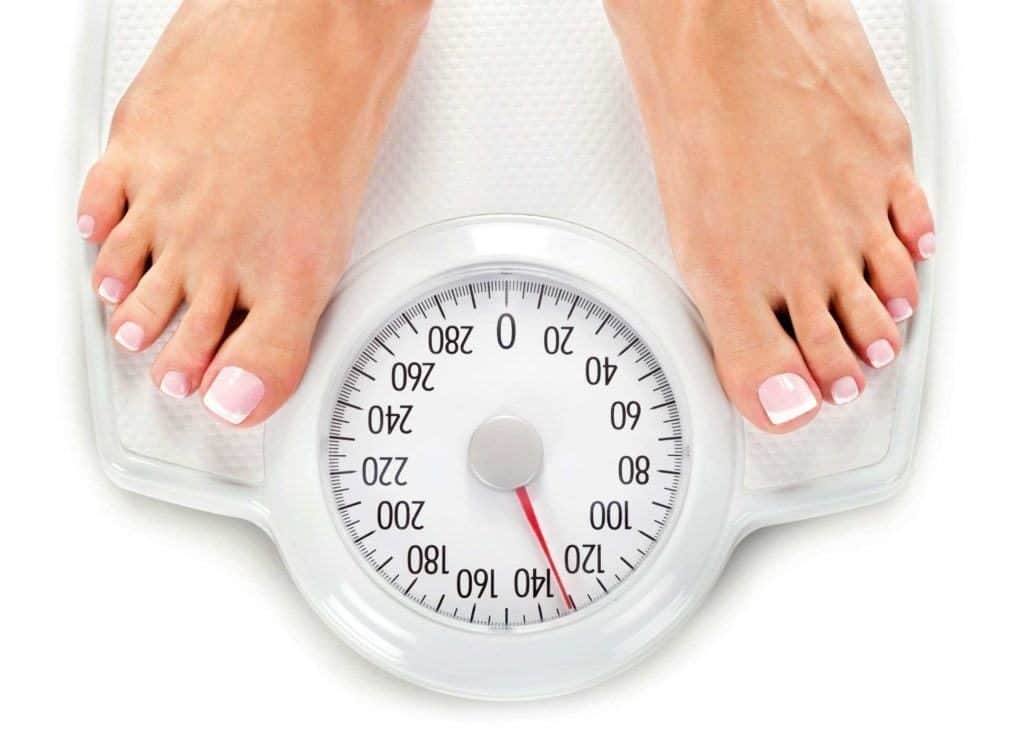Contents:
- Medical Video: Gestational Diabetes: Managing Risk During and After Pregnancy Video - Brigham and Women’s Hospital
- Guidelines for increasing body weight
- Manage weight
- Tips to prevent unwanted weight during pregnancy.
- Use the method of cooking low-fat foods while cooking
- Use enough fat to add to food
- Choose lean meat cuts
- Choose low-fat dairy products
- Choose snacks wisely
- Eating foods rich in fiber
- Limit extra calorie intake in drinks
- Limit the addition of salt
- Reduce eating outside the home
Medical Video: Gestational Diabetes: Managing Risk During and After Pregnancy Video - Brigham and Women’s Hospital
It's time for the monthly ritual that many women fear: weighing weight in the doctor's room. Too much weight makes you feel like you have eaten too much and are not physically active enough. Too little weight makes you feel as if you are malnourished.
In fact, changes in body weight during pregnancy vary in women. A little fat here and there will only make a small difference when you're pregnant, so it's not something to be afraid of. The keyword when weight gain during pregnancy is moderation. Weight gain normally during pregnancy is a sign that the baby is getting the needed nutrients. It also helps ensure your health during and after pregnancy, and will make blood glucose levels more manageable.
Guidelines for increasing body weight
The purpose of increasing weight varies for each woman with an average body weight before pregnancy, lack of weight before pregnancy, or being overweight before pregnancy. A woman with an average body weight before pregnancy (defined as BMI * 18.5-25) should rise around 12-17 kg at the time of delivery. Thin women (BMI * <18.5) must rise between 14-20 kg which is still considered optimal. Obese women (BMI *> 25) must reduce weight: 7-12 kg if they are overweight, and even less if obesity. If you are expecting twins, raise about 5 kg of body weight.
* BMI is the relationship between height and weight. You can calculate your own BMI by taking the weight (in kilograms) and dividing it by your height (in meters) squared.
Value weight during pregnancy is also evaluated at each visit to your doctor. A woman with an average weight (BMI of 18.5-25) must gain weight around 1-2 kg in the first trimester (up to week 12), 5-6 kg in the second trimester (weeks 13-26), and 6-7 kg in the third trimester (weeks 27-40). This figure shows an average of 0.5 kg / week for the last two trimesters.
At the end of pregnancy, only about 3-4 kg of weight obtained is "baby weight". So, where do the rest come from?
The following are details of heavy accumulation during pregnancy:
Babies: 4 kg
Placenta: 1-2 kg
Amniotic fluid: 1-2 kg
Breast tissue: 1-2 kg
Blood supply: 3-5 kg
Uterine growth: 1-3 kg
——————————————
Overall total: 11-18 kg
Manage weight
After the first 12 weeks of pregnancy, most women need an additional 300 calories / day, as well as an increase in protein.
What can you do if you gain weight significantly or less than recommended during pregnancy? Keep in mind that in most cases it is not a good idea to lose weight during pregnancy. The aim is to maintain a healthy lifestyle. Physical activity and a healthy diet will benefit you and your baby.
Moderate physical activity, with your doctor's approval, a minimum of 30 minutes / day is generally recommended. Cardiovascular exercise such as swimming, walking, or cycling helps you to stay fit and burn extra calories. Exercise that forms muscle is also very beneficial because it helps increase the body's metabolism. Combine your daily activities, such as walking instead of driving, or climbing stairs instead of using an elevator. Minimize the time you spend on activities that do not consume a lot of energy such as watching TV or using a computer for too long.
For a smooth diet, make sure to eat various types of food to meet your nutritional needs. If your weight rises too fast, look again at how you eat. Maintain calorie and fat intake, food preparation methods, frequency and choice of snacks, as well as your liquid / beverage intake. Also, remember how often you eat out or bring food when you go home.
Tips to prevent unwanted weight during pregnancy.
Use the method of cooking low-fat foods while cooking
Do not fry food with oil or butter. Frying will increase the calories and fat in these foods. Choose foods that are baked, burned, or steamed.
Use enough fat to add to food
Margarine, butter, oil, salad sauce, sour cream, cream cheese, sauces and gravy can easily increase hundreds of levels of extra calories in your food. To reduce calorie intake, try replacing it with non-fat cooking spray, low-fat salad dressing, butter substitute spray, and free or low-fat cheese.
Choose lean meat cuts
A woman's daily protein needs will increase during pregnancy, but the majority of people consume a relatively high amount of protein in their diet. Therefore, most women need to meet increased protein requirements during pregnancy (70-80g per day) through the usual diet. Choose a source of low-fat protein: skim milk, egg white, beans, tofu, soy sauce, fish, white fleshed poultry (without skin), and beef or pork waist part which is circular cut.
Choose low-fat dairy products
Calcium needs will increase during pregnancy. Most women must consume 3-4 servings of dairy products / day. By choosing more than 2% skim milk or whole milk, you can reduce almost half the number of calories. You can also reduce calories by choosing low-fat yogurt and reduce fatty cheese.
Choose snacks wisely
Fries and other snacks such as chips, donuts, cakes, and pastries contain a lot of extra calories and are very poor in nutrients. Limit your intake of these high-fat snacks at least 1 time / week. Read product labels in choosing snacks that have less than 4 grams of fat / portion. Better choices include fresh fruit, pretzels, popcorn, low-fat yogurt, and low-fat ice cream. Manage the frequency of your snack consumption. Often snacking does not only make blood glucose very difficult to control, you will instead get used to ignoring the calorie intake that enters the body. Instead, make your snack planning list. One or two snacks interspersed evenly between meals are more than enough.
Eating foods rich in fiber
A high-fiber diet will help you feel full longer. This will also minimize blood sugar levels after eating. For those who experience constipation during pregnancy, fiber can help launch bowel movements. Foods rich in fiber such as wheat, green beans, peas, lentil beans, fruits, seeds, vegetables, and grains. Don't forget to reduce the fiber portion of the total carbohydrate when calculating and determining carbohydrates with insulin levels.
Limit extra calorie intake in drinks
Fluid requirements increase during pregnancy. Pregnant women need about 10 glasses of fluid per day. Meet the needs of fluids with mineral water and not with soda, juice or milk. Avoid alcohol, which is a drink rich in calories and dangerous for your baby's development.
Limit the addition of salt
Avoid adding salt to food when cooking because salt will cause the body to withstand the weight of fluid in the body.
Reduce eating outside the home
Restaurant food is indeed rich in fat and calories. The portion served tends to be far more than the food cooked at home, besides the calculation of carbohydrates will be even more difficult. Prepare your own food as much as needed.
If you choose to eat out (or order food to take home), choose a low-fat one such as grilled food and not fried ones. Limit the use of sauces and gravy. Ask for salad dressing, margarine and sour cream to separate. Limit the use of high fat ingredients like mayonnaise; ask not too much mayo for the sandwich. Choose plain bagels or plain baked potatoes. Ask for slices of tomatoes, fruit or salad instead of consuming potato chips, french fries, fried onions, or cheese sticks. In addition, sweet desserts should only be eaten occasionally.
Pregnancy can provide motivation to take care of yourself better, including regulating a healthy diet and exercising. The main prize for all your efforts is of course a baby born in good health and your body weight remains normal (not too drastic) post-pregnancy. If you gain weight faster or slower than you should, try evaluating your diet and pattern of activity. If you can't find the answer, talk to a nutritionist or a diabetes consultant.












